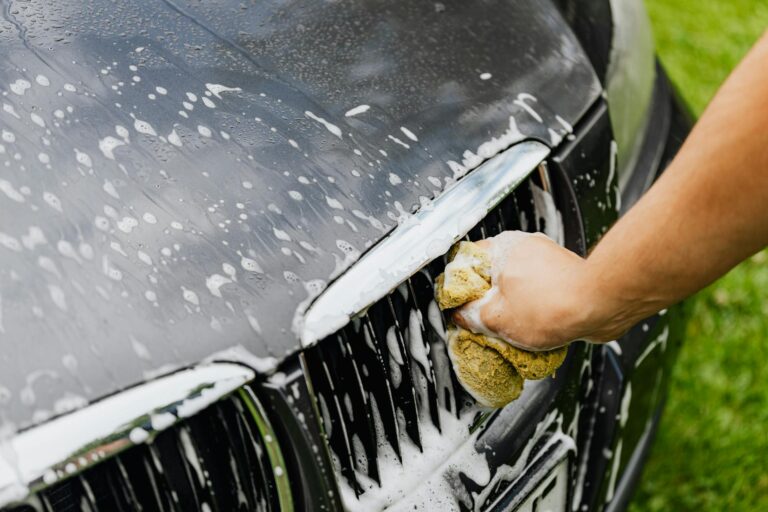Introduction to Car Maintenance
Regular car maintenance is crucial for vehicle longevity and safety. Simple practices like oil changes, tire rotations, and brake checks can significantly impact vehicle performance. Regular Olympia wa strategies in check-ups enhance performance, saving money and ensuring road safety. Ignoring maintenance can lead to escalating problems and severe damage. Regular check-ups allow early detection and resolution of issues, making them less costly than major repairs. Proactive maintenance minimizes unexpected roadside emergencies and ensures efficient vehicle operation.
Why Regular Maintenance Matters
Routine maintenance is essential for avoiding significant malfunctions and expensive repairs, minimizing the risk of sudden breakdowns, and replacing worn components. It enhances vehicle reliability, lowers accident risks, and maintains the car’s resale value. Proper tire inflation may increase gas economy by up to 3%, and a well-maintained engine operates more effectively, consuming less gasoline. Regular maintenance also improves fuel efficiency. For further benefits, consider performance improvement Olympia WA. Therefore, regular maintenance is a preventive measure and a proactive component of overall vehicle performance.
Essential Maintenance Tips Everyone Should Know
Here are some practical tips to keep your car running smoothly:
- Oil Changes: Regularly changing oil ensures the engine remains lubricated and runs efficiently. It is advised to replace the oil every 3,000 to 5,000 miles, based on driving circumstances and the oil used.
- Tire Rotations: Regularly rotating tires promote even tread wear and extend tire life. Tire rotation is generally recommended every 6,000 to 8,000 miles.
- Brake Inspections: Periodic brake checks can prevent failures and ensure driving safety. Inspecting your brakes at least once a year or every 12,000 miles is advisable.
- Fluid Levels: Maintaining proper fluid levels, including coolant, brake fluid, and transmission fluid, supports the overall performance of the car. These fluids should be checked during every oil change or at least once a month.
In addition to these tips, consider the value of keeping your car clean. Regular washing and waxing can prevent rust and paint damage, thus prolonging the life of your vehicle’s exterior. Routine checks of wiper blades and light bulbs also ensure clear visibility and proper lighting while driving, adding an extra layer of safety.
Understanding Vehicle Warning Lights
Dashboard warning lights are crucial indicatorsof your car’s internal health. Serious consequences may result from ignoring these indicators. For instance, a guide by Cars.com explains the importance of addressing warning lights promptly to avoid engine damage, transmission issues, or safety system failures. When warning lights show, you may quickly stop minor problems before they become major repairs.
The “check engine” light is one of the standard warning lights, and it can indicate anything from a leaky gas cap to a serious engine issue. The “brake” light suggests potential problems with your braking system, warranting immediate attention. The “battery” light alerts you to a charging problem with your battery or alternator. By understanding these indicators, you can take appropriate action swiftly, mitigating risks and potentially high repair costs.
Seasonal Maintenance Checks
Performing seasonal maintenance checks is vital. Winter and summer bring unique challenges for vehicles. Ensure that your battery and antifreeze levels are checked and functioning correctly in winter. Cold weather can significantly reduce battery performance, making it more likely for older batteries to fail. During summer, prioritize the air conditioning system and tire pressure to cope with the hot weather. High temperatures can cause tire blowouts and strain your vehicle’s cooling system.
In addition to these checks, consider using winter-grade oil during colder months to ensure smooth engine operation. Similarly, inspect your windshield wipers before the rainy season begins to ensure they provide clear visibility during heavy rain. By aligning your maintenance routine with the seasons, you prepare your car to handle varying weather conditions effectively.
Professional Inspections vs. DIY
While you can perform basic tasks yourself, professional inspections cover in-depth evaluations that might go unnoticed. Technicians are trained to pinpoint issues that a DIY enthusiast might miss. Therefore, combining DIY efforts with professional services ensures a comprehensive maintenance strategy. Expert mechanics possess sophisticated diagnostic equipment, enhancing their assessments’ accuracy and comprehensiveness.
For instance, while you might be able to change your oil and filter, a professional can conduct a complete inspection that includes checking the suspension, exhaust system, and other critical components. Regular professional check-ups can uncover hidden issues, such as minor leaks or worn-out parts before they become severe problems. This combined approach helps maintain the vehicle’s performance and reliability over time.
Cost-Effective Maintenance Practices
One of the biggest misconceptions is that car maintenance is expensive. On the contrary, regular maintenance is often far cheaper than major repairs. Regular washing and waxing habits can also preserve the car’s exterior and prevent rust. Investing in low-cost maintenance practices yields long-term savings by avoiding significant mechanical failures or the need for expensive replacements.
Another cost-effective practice is using high-quality, long-lasting parts, such as synthetic oil or premium brake pads, which may have a higher upfront cost but save money in the long run. Additionally, following a maintenance schedule outlined in your vehicle’s owner manual can prevent costly errors and extend the car’s life. Shop around for the best deals on service packages, and consider learning some basic maintenance skills to handle minor tasks yourself, such as topping off fluids or replacing air filters.
Conclusion: Better Safe Than Sorry
Regular vehicle maintenance is a proactive approach to car care. It ensures safety, saves money, and extends the life of your car. If you heed these suggestions and seek professional advice when necessary, you may have a dependable and economical car for many years. Taking the time for routine maintenance can lead to significant benefits, including improved fuel efficiency, enhanced performance, and overall cost savings.
Maintaining a logbook of all services and repairs carried out on your vehicle can help track when the next maintenance is due and provide valuable insights into recurring issues. Stay informed and proactive to keep your car in optimal condition, significantly enhancing its lifespan and reliability.



